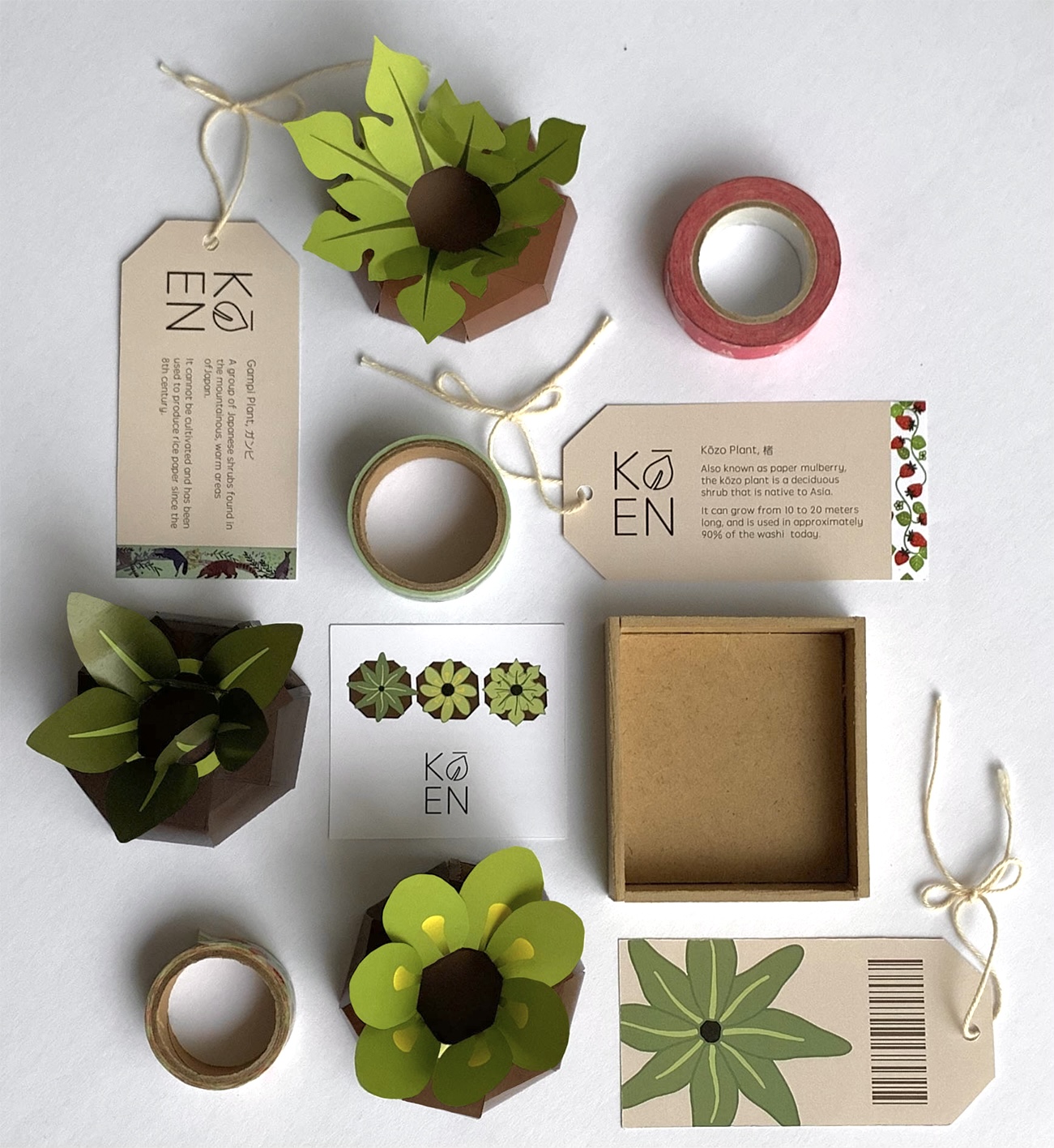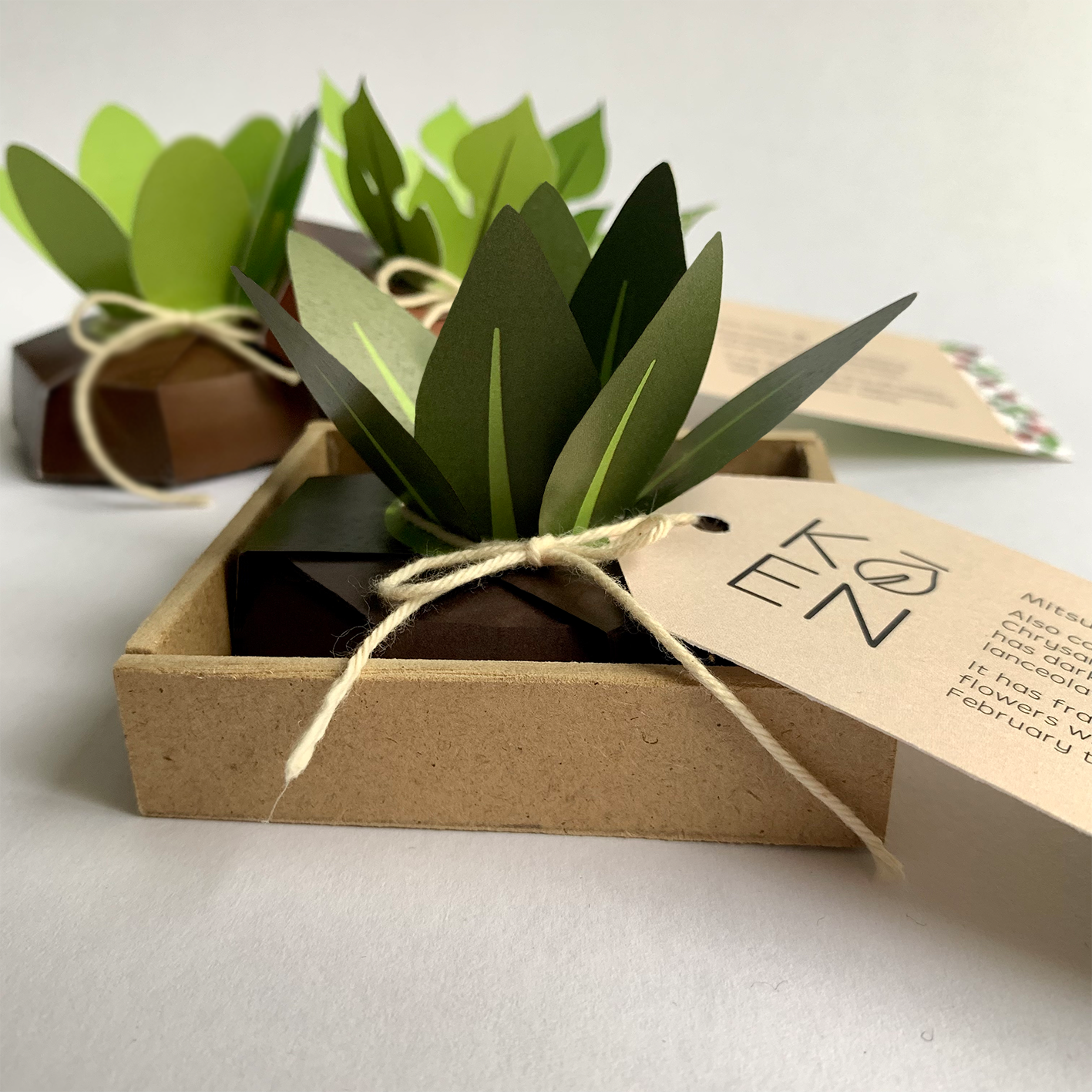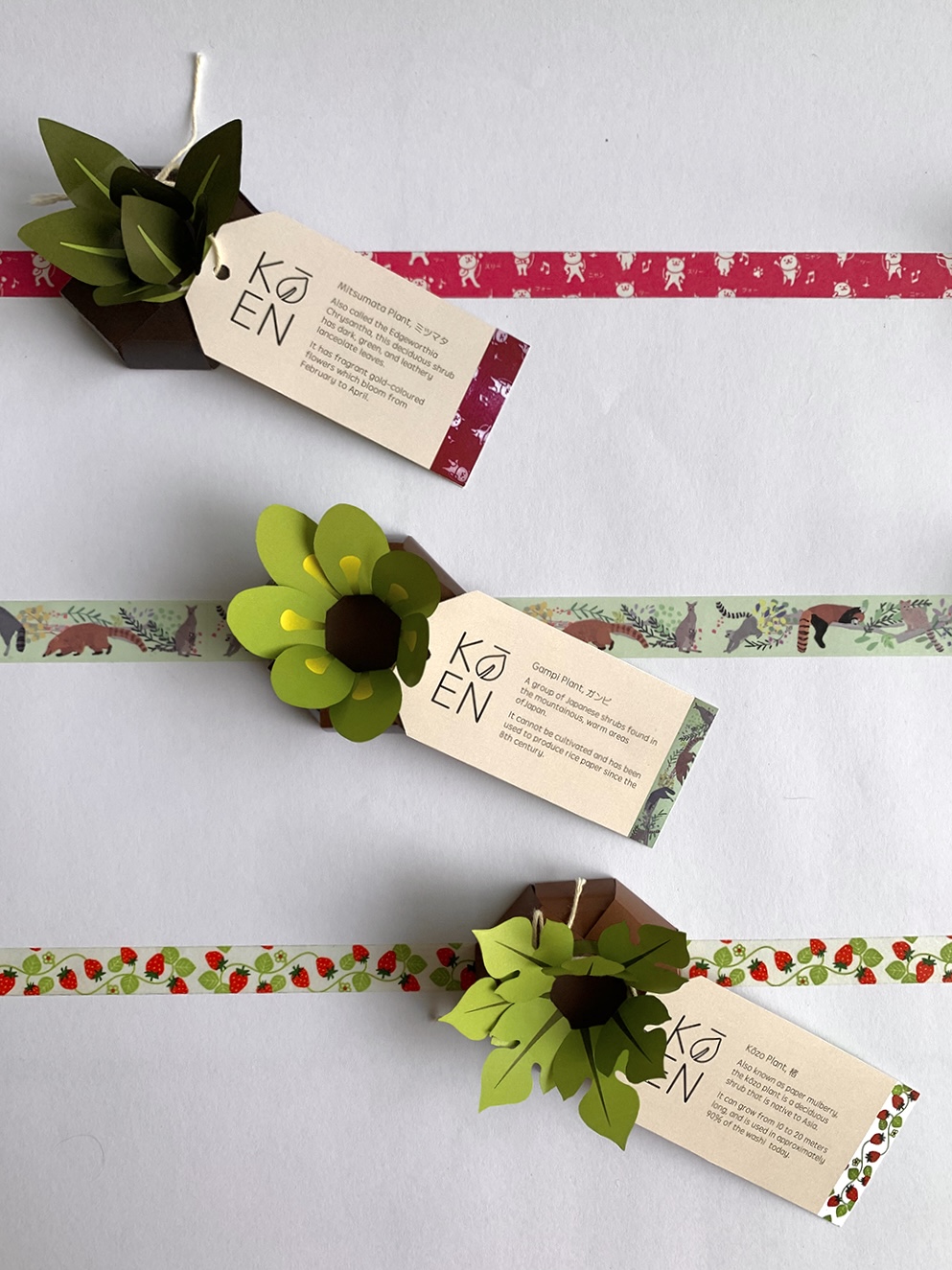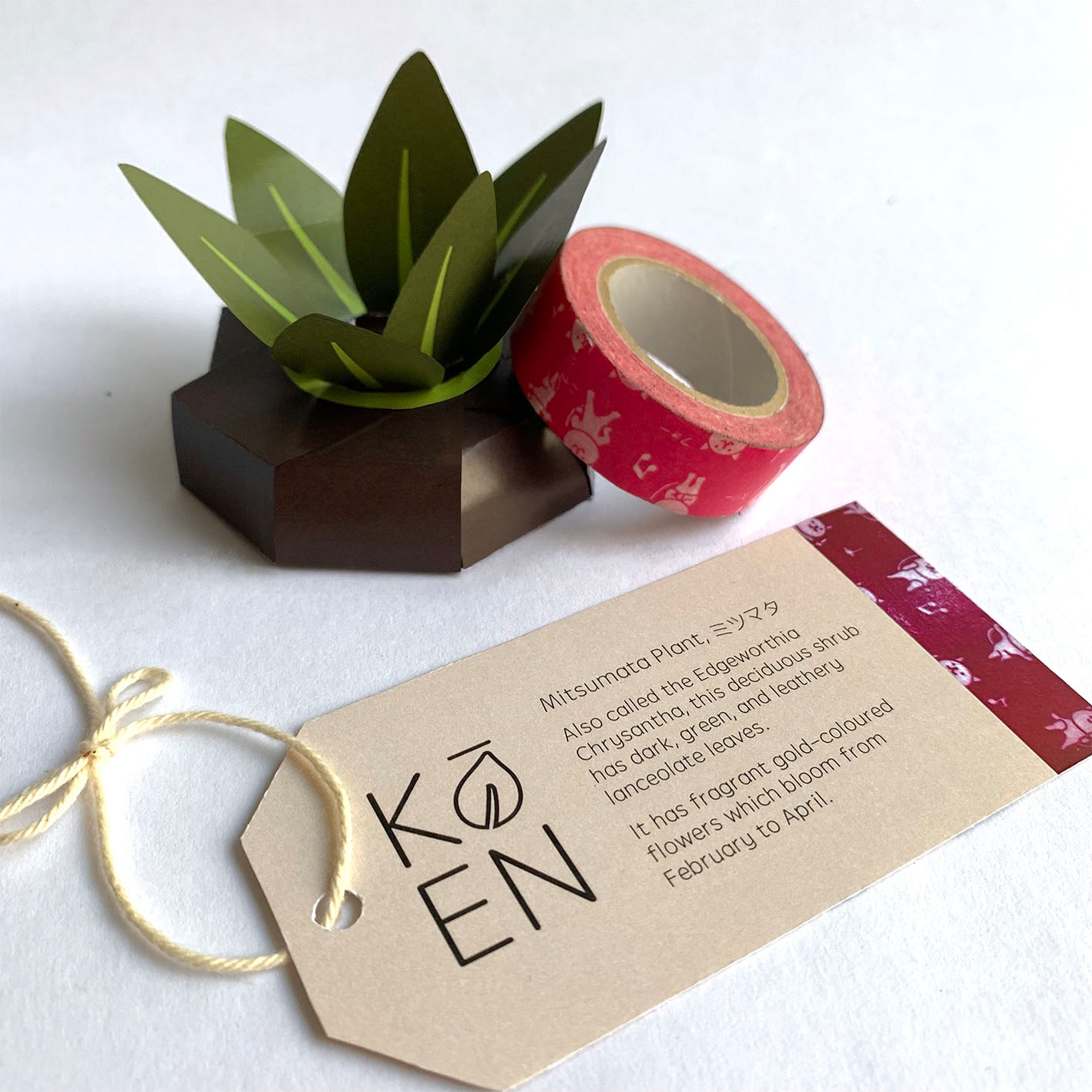


Washi tape is a product that has deep connections to nature, and the production of washi paper is a traditional art form dating back to the 8th century. マスキングテープ “washi tape” refers to the fact that the tapes are made from traditional rice paper, and differentiates it from the typical masking tape you might find in the hardware store. Upon observation of current washi tape packages, most neglect these connections, and are simply wrapped in a plastic film in its original form. As consumers of washi tape vary in age, nationality and culture, there is a large demographic who is unaware of the tape’s origins. Kō-en was created in response to the lack of awareness surrounding this topic.
Washi tape is a product that has deep connections to nature, and the production of washi paper is a traditional art form dating back to the 8th century. マスキングテープ “washi tape” refers to the fact that the tapes are made from traditional rice paper, and differentiates it from the typical masking tape you might find in the hardware store. Upon observation of current washi tape packages, most neglect these connections, and are simply wrapped in a plastic film in its original form. As consumers of washi tape vary in age, nationality and culture, there is a large demographic who is unaware of the tape’s origins. Kō-en was created in response to the lack of awareness surrounding this topic.
Washi tape is a product that has deep connections to nature, and the production of washi paper is a traditional art form dating back to the 8th century. マスキングテープ “washi tape” refers to the fact that the tapes are made from traditional rice paper, and differentiates it from the typical masking tape you might find in the hardware store. Upon observation of current washi tape packages, most neglect these connections, and are simply wrapped in a plastic film in its original form. As consumers of washi tape vary in age, nationality and culture, there is a large demographic who is unaware of the tape’s origins. Kō-en was created in response to the lack of awareness surrounding this topic.
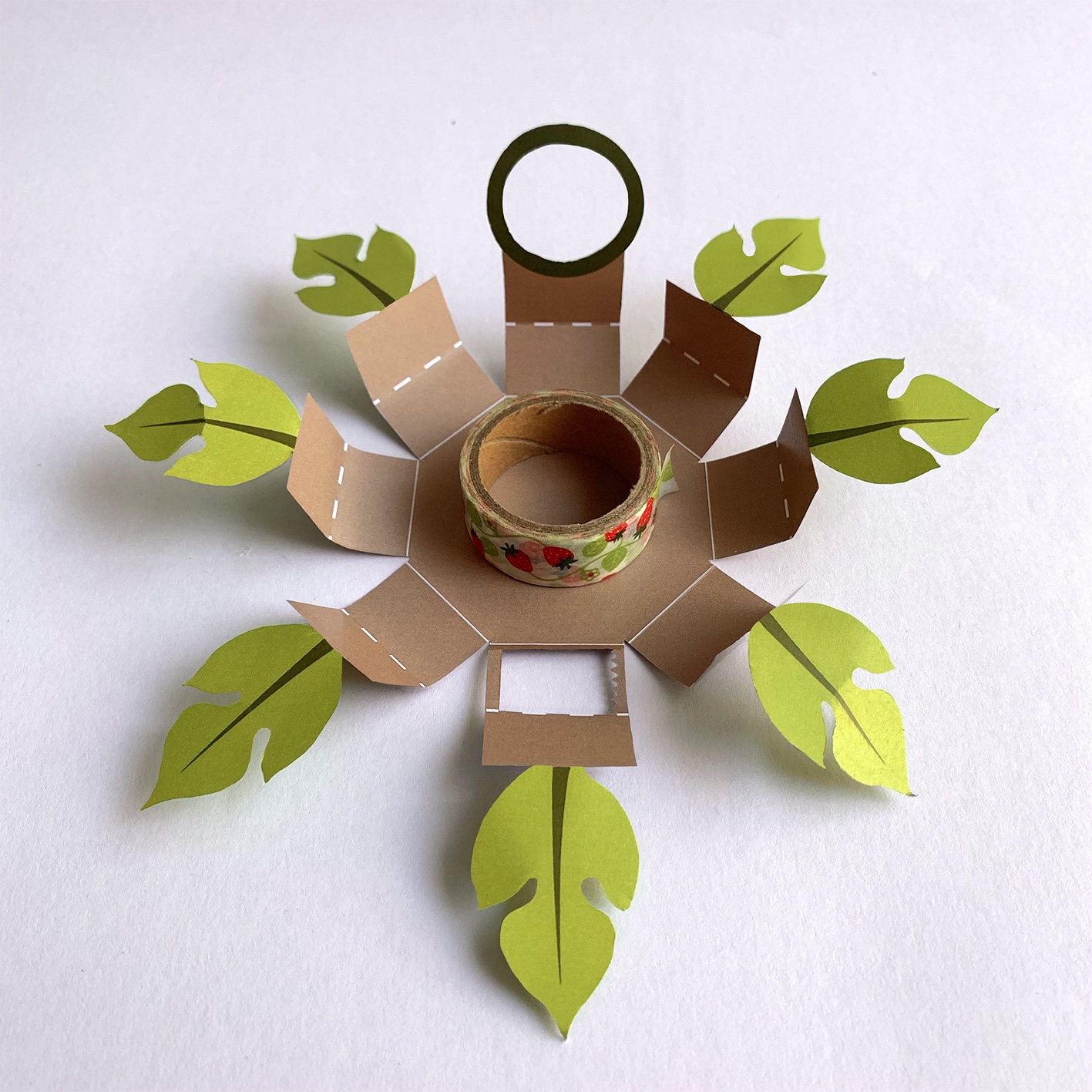


Kō-en is the Japanese translation for garden, or park in English. With the desire to inform its audiences on the plants used in the washi paper production process, and create a connection between traditional art forms, the Kō-en series utilizes the three core plants to house and dispense the tapes, as well as a square basket to showcase old Japanese art. Often, washi tapes are found in craft or stationery stores. For this reason, the unique appearance of the package will stand out against the plain containers of office supplies, resulting in a higher appeal factor towards the information and symbolism being communicated through Kō-en. With Kō-en, consumers can collect three types of plants, each containing a different pattern of washi tape. When the roll is finished, users can unwrap the plant’s leaves and replace the tape, allowing for an endless usage of the package.
Kō-en is the Japanese translation for garden, or park in English. With the desire to inform its audiences on the plants used in the washi paper production process, and create a connection between traditional art forms, the Kō-en series utilizes the three core plants to house and dispense the tapes, as well as a square basket to showcase old Japanese art. Often, washi tapes are found in craft or stationery stores. For this reason, the unique appearance of the package will stand out against the plain containers of office supplies, resulting in a higher appeal factor towards the information and symbolism being communicated through Kō-en. With Kō-en, consumers can collect three types of plants, each containing a different pattern of washi tape. When the roll is finished, users can unwrap the plant’s leaves and replace the tape, allowing for an endless usage of the package.
Kō-en is the Japanese translation for garden, or park in English. With the desire to inform its audiences on the plants used in the washi paper production process, and create a connection between traditional art forms, the Kō-en series utilizes the three core plants to house and dispense the tapes, as well as a square basket to showcase old Japanese art. Often, washi tapes are found in craft or stationery stores. For this reason, the unique appearance of the package will stand out against the plain containers of office supplies, resulting in a higher appeal factor towards the information and symbolism being communicated through Kō-en. With Kō-en, consumers can collect three types of plants, each containing a different pattern of washi tape. When the roll is finished, users can unwrap the plant’s leaves and replace the tape, allowing for an endless usage of the package.
